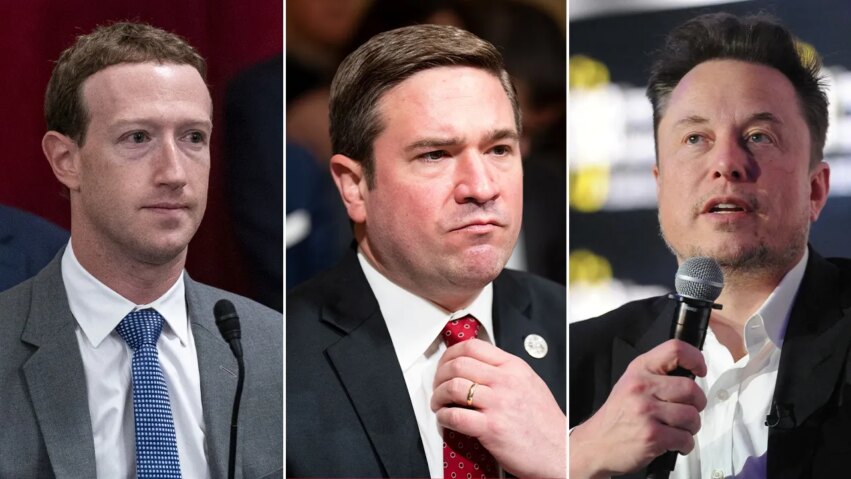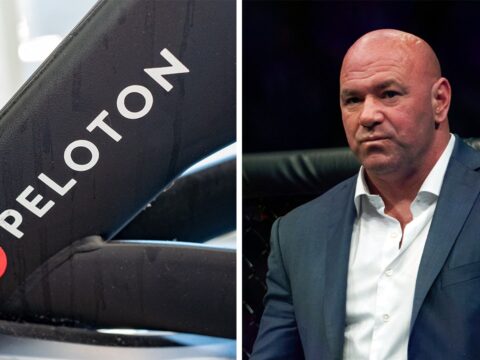Join Fox News for access to this content Plus get unlimited access to thousands of articles, videos and more with your free account! Please enter a valid email address. By entering your email, you are agreeing to Fox News Terms of Service and Privacy Policy, which includes our Notice of Financial Incentive. To access the content, check your email and follow the instructions provided.
FIRST ON FOX – A group of 20 Republican states are weighing in on a Supreme Court legal battle that could sharply alter the landscape of Big Tech’s content moderation. Next month, the high court will hear a set of cases that question whether state laws that limit Big Tech companies’ ability to moderate content on their platforms curbs the companies’ First Amendment liberties.Missouri Attorney General Andrew Bailey – one of the Republican AGs leading the lawsuit against the Biden administration, alleging it engaged in a “vast censorship enterprise” – on Monday filed an amicus brief along with 19 of his colleagues in the cases, asking the Supreme Court to rule in favor of the laws meant to limit internet platform’s ability to moderate content. “If the Supreme Court lets social media companies silence speech, it will set a devastating anti-free speech precedent at a time when the First Amendment is under widespread attack,” Bailey told Fox News digital on Monday. JAN 6 RIOTERS, ABORTION, GUN RIGHTS: A LOOK AHEAD AT LANDMARK CASES SCOTUS WILL HEAR IN 2024 Missouri Attorney General Andrew Bailey (Bloomberg via Getty Images)Separate laws that passed in Florida and Texas and are now challenged in court would require large Big Tech companies like X, formerly Twitter, and Facebook to host third-party communications but prevent those businesses from blocking or removing users’ posts based on political viewpoints. A federal appeals court had ruled for the tech industry in the Florida case, saying as private entities, those companies were “engaged in constitutionally protected expressive activity when they moderate and curate the content that they disseminate on their platforms.” But the Fifth Circuit ruled in favor of a similar law in Texas, creating a circuit split on the issue ripe for the nine justices to take up. The attorneys general argue in the friend-of-the-court brief that government giving Big Tech the ability to moderate or censor users’ content would be like giving cable or telephone companies permission to cut phone lines on speech at their discretion. The AGs note that under federal “must-carry requirements,” those companies are banned from subjugating any speech on their lines.NYC PROFS SEE SUPREME COURT AS ‘ONLY HOPE’ IN FIGHT WITH ‘ANTISEMITIC’ TEACHERS UNION Meta CEO Mark Zuckerberg (David Paul Morris/Bloomberg via Getty Images)SUPREME COURT APPEARS READY TO REEL IN ADMINISTRATIVE STATE IN LANDMARK CHALLENGE FROM EAST COAST FISHERMEN”The Eleventh Circuit concluded social media companies could censor content because they have ‘historically exercised’ power to refuse transmission of disfavored ideas,” the AGs noted. “But telegraph companies have a much longer history of censorship. Social media is less than two decades old. Congress did not impose must-carry requirements on telegraphs until 1888, 50 years after their invention,” the AGs argue in their brief. “Yet it is well recognized today that those must-carry regulations were constitutional – even though this Court declared that telegraph companies are ‘not common carriers.’ History thus provides no basis for dismissing the striking similarities between social media companies and telegraph and telephones by dubbing social-media censorship ‘editorial judgment,’” they said. The U.S. Supreme Court (AP Photo/Mariam Zuhaib, File)”While the earlier laws applied to telegraphs and telephones, it is no different when the companies carrying other people’s speech are digital rather than analog,” they continued. “The States thus have a paramount interest in urging this Court to affirm that longstanding, historic authority of States to protect freedom of speech and enable representative government by prohibiting dominant communication networks from censoring,” they concluded. CLICK HERE TO GET THE FOX NEWS APPIn addition to Missouri, attorneys general from Ohio, Alabama, Montana, Alaska, Nebraska, Arkansas, New Hampshire, Iowa, North Dakota, Kentucky, Oklahoma, Louisiana, South Carolina, Mississippi, Arizona, Virginia, South Dakota, Utah and Tennessee signed the amicus brief. The court will hear arguments in the cases, Moody v. NetChoice, LLC and NetChoice LLC v. Paxton on Monday, Feb. 26.

















![Suspect for Multiple Residential Burglaries in the 9th District [VIDEO] – Blotter](https://www.phillynewsnow.com/wp-content/uploads/2021/09/Multiple-Residential-Burglaries-16xx-Ogden-St-DC-21-09-028019-100x100.jpg)



